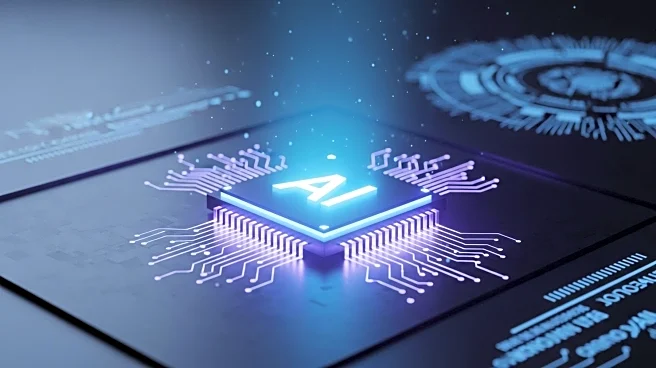What's Happening?
Walmart CEO Doug McMillon has stated that artificial intelligence (AI) is set to change every job within the company, which is the largest private employer in the United States. McMillon emphasized the need for workers to adapt to AI technologies to remain relevant in their roles. Walmart plans to maintain its global workforce at 2.1 million employees over the next three years, despite anticipating revenue growth driven by AI adoption. The company is integrating AI tools such as chatbots to enhance customer service and supply chain management. McMillon noted that white-collar jobs would be among the first affected, but AI's impact will eventually extend to store and warehouse roles.
Why It's Important?
The integration of AI into Walmart's operations signifies a broader trend in the retail industry, where automation and technology are increasingly used to improve efficiency and reduce costs. This shift could lead to significant changes in employment patterns, with potential reductions in workforce numbers as AI takes over routine tasks. However, it also presents opportunities for workers to develop new skills and adapt to technological advancements, ensuring their continued value in the workplace. The emphasis on AI highlights the need for workers to enhance their soft skills, such as communication and critical thinking, which remain crucial despite technological changes.
What's Next?
As Walmart continues to implement AI technologies, employees will need to familiarize themselves with these tools to maintain their positions and contribute effectively to the company's operations. The company may offer training programs to help workers transition to new roles that require interaction with AI systems. Other major retailers and industries are likely to follow suit, adopting similar strategies to integrate AI into their business models. This could lead to a broader transformation in the job market, with increased demand for tech-savvy workers who can navigate AI-driven environments.
Beyond the Headlines
The widespread adoption of AI in the workplace raises ethical and cultural questions about the future of employment and the role of human workers. As AI becomes more prevalent, there may be concerns about job displacement and the need for policies to support workers transitioning to new roles. Additionally, the reliance on AI could impact workplace dynamics, requiring a reevaluation of how human and machine collaboration is managed. Long-term, this shift could influence educational priorities, with a greater focus on technology and soft skills training.









